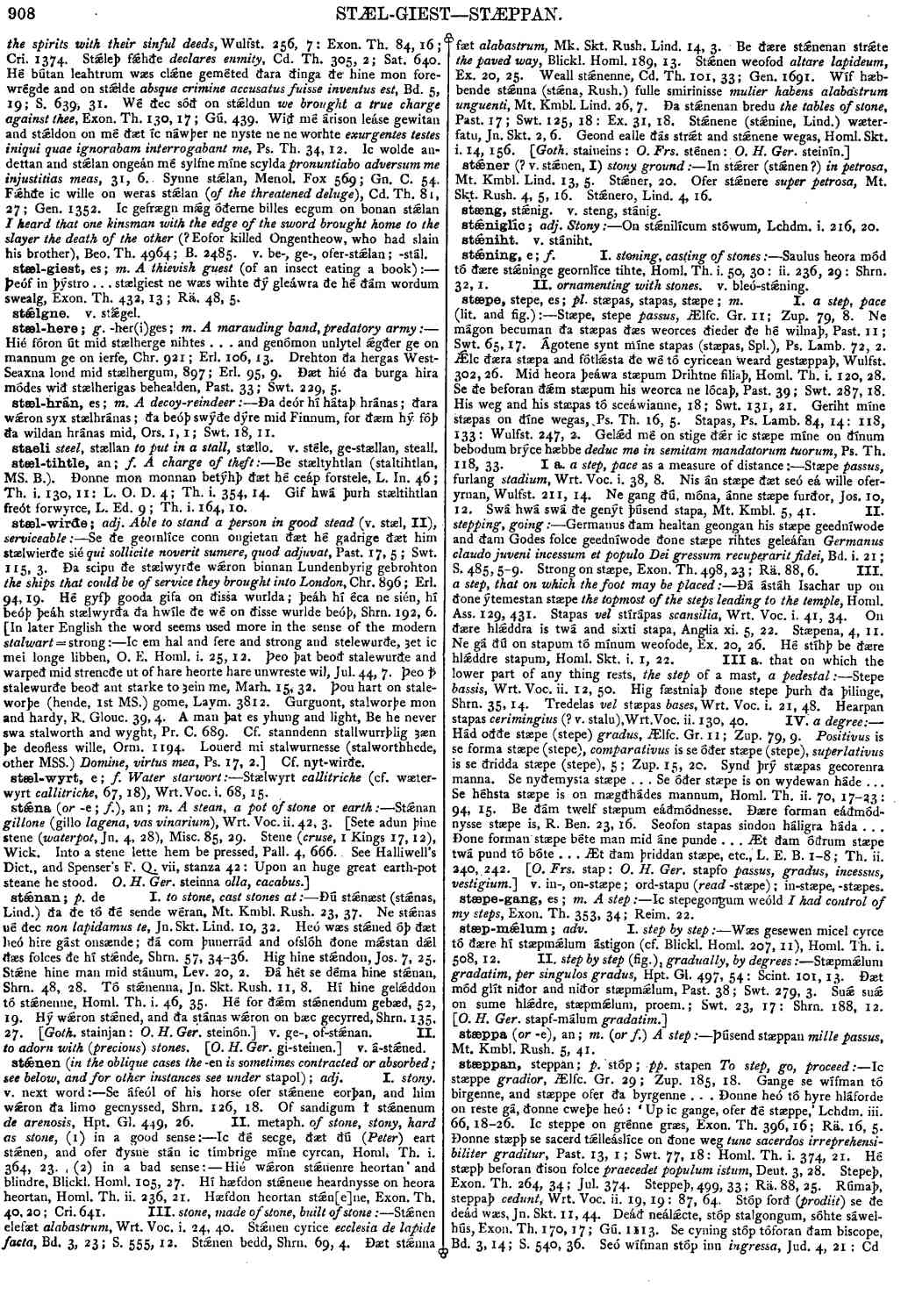stǽnen
- adjective
-
Se áfeól of his horse ofer stǽnene eorþan, and him wǽron ða limo gecnyssed,
- Shrn. 126, 18.
-
Of sandigum ł stǽnenum
de arenosis,
- Hpt. Gl. 449, 26.
-
Ic ðé secge, ðæt ðú (
Peter
) eart stǽnen, and ofer ðysne stán ic timbrige míne cyrcan,- Homl. Th. i. 364, 23.
-
Hié, wǽron stǽnenre heortan and blindre,
- Blickl. Homl. 105, 27.
-
Hí hæfdon stǽnene heardnysse on heora heortan,
- Homl. Th. ii. 236, 21.
-
Hæfdon heortan stǽn[e]ne,
- Exon. Th. 40, 20; Cri. 641.
-
Stǽnen elefæt
alabastrum,
- Wrt. Voc. i. 24, 40.
-
Stǽnen cyrice
ecclesia de lapide facta,
- Bd. 3, 23; S. 555, 12.
-
Stǽnen bedd,
- Shrn. 69, 4.
-
Ðæt stǽnna fæt
alabastrum,
- Mk. Skt. Rush. Lind. 14, 3.
-
Be ðære stǽnenan strǽte
the paved way,
- Blickl. Homl. 189, 13.
-
Stǽnen weofod
altare lapideum,
- Ex. 20, 25.
-
Weall stǽnene,
- Cd. Th. 101, 33; Gen. 1691.
-
Wíf hæbbende stǽnna (stǽna, Rush.) fulle smirinisse
mulier habens alabdstrum unguenti,
- Mt. Kmbl. Lind. 26, 7.
-
Ða stǽnenan bredu
the tables of stone,
- Past. 17; Swt. 125, 18: Ex. 31, 18.
-
Stǽnene (sǽnine,
- Lind.) wæterfatu, Jn. Skt. 2, 6.
-
Geond ealle ðás strǽt and stǽnene wegas,
- Homl. Skt. i. 14, 156.
Bosworth, Joseph. “stǽnen.” In An Anglo-Saxon Dictionary Online, edited by Thomas Northcote Toller, Christ Sean, and Ondřej Tichy. Prague: Faculty of Arts, Charles University, 2014. https://bosworthtoller.com/28656.
Checked: 0